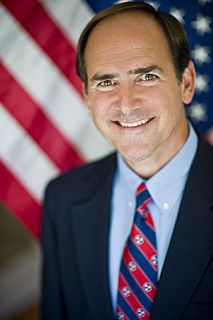A Quote by George Osborne
There is a big problem. The problem is the country borrowed too much. We went on a borrowing binge, there was a housing boom. You want to help people de-leverage and deal with those debts over time.
Related Quotes
We [the USA] do have a big nation's problem. We have the problem of a nation that's got two oceans, oceans on either side. People come from all across the globe and want to live here and they want to work here and they want to invest here. And that's a good thing. And they make up this country. But as a people, we [americans] are not highly skilled in languages. We're not highly skilled in knowledge of other cultures. And that's a problem.
The problem facing humanity today is not a political problem; it's not a financial problem; it's not a military problem. It's obviously a spiritual problem. That is, it has to do with what we believe to be true about who we are, where we are, why we are where we are, and what are we doing on the Earth. What is the purpose of life itself? What we need right now are leaders or models, people who will stand up and not only help to write a cultural story, but help to model it in the way that they interact with each other.
Let me take some pressure off. Your problem is not discipline. Your problem is not organization. Your problem is not that you have yet to stumble upon the perfect schedule. And your problem is not that the folks at home demand too much of your time. The problem is this: there’s not enough time to get everything done that you’re convinced—or others have convinced you—needs to get done.
Civil disobedience is not our problem. Our problem is civil obedience. Our problem is that people all over the world have obeyed the dictates of leaders…and millions have been killed because of this obedience…Our problem is that people are obedient allover the world in the face of poverty and starvation and stupidity, and war, and cruelty. Our problem is that people are obedient while the jails are full of petty thieves… (and) the grand thieves are running the country. That’s our problem.
Look at all the things that can go wrong for men. There’s the nothing-happening-at-all problem, the too-much-happening-too-soon problem, the dismal-droop-after-a-promising-beginning problem; there’s the size-doesn’t-matter-except-in-my-case problem, the failing-to-deliver-the-goods problem…and what do women have to worry about? A handful of cellulite? Join the club. A spot of I-wonder-how-I-rank? Ditto.
As a writer, I've always believed that while my work and I myself are embedded in whatever period I am writing about, clearly I am sensitive to the winds that are blowing in the culture. At the same time, I have always felt that the issue was not to deal with the problem in the abstract, but to deal with the people who are in that problem. The emphasis is on the people. The general problem begins to resolve itself even before the play is finished.
We have to do something about the cartels. I did talk to [Enrique Peña Nieto] about it. I want to help him with it. I think he's a very good man. We have a very good relationship.He seemed very willing to get help from us because he has got a problem, and it's a real problem for us. Don't forget those cartels are operating in our country. And they're poisoning the youth of our country.
Government is not a solution to our problem, government is the problem. ... Government does not solve problems; it subsidizes them. Government's view of the economy could be summed up in a few short phrases: If it moves, tax it. If it keeps moving, regulate it. If it stops moving, subsidize it. ... The problem is not that people are taxed too little, the problem is that government spends too much.
In the last quarter of the 20th century, Britons have been understandably obsessed with the problem of having too little power in the world. In the third quarter of the 18th century, by contrast, their forebears were perplexed by the problem of having acquired too much power too quickly over too many people.
If we want to impact hundreds - or millions - of people, we have to do things differently. If we look at the problem as an infrastructural problem, we cannot make an impact because it requires a lot of effort. But when we convert this problem into a knowledge problem, suddenly the problem is manageable.


































